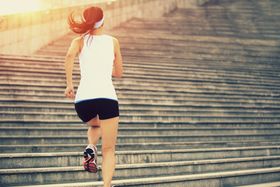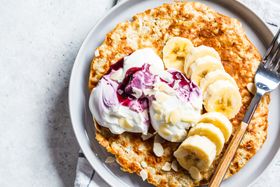Trim Down Answers
Have a question about diet and nutrition, exercise and fitness, or health and vitality? Our nutrition and fitness experts are here to help! We cover everything from menopause to metabolism boosters and beyond.
Recent Answers
Does Exercise Actually Boost Energy Levels?
There's no doubt that exercise offers numerous benefits. But how do you feel at the end of your workout? Exhausted or perhaps more energized? While you may feel tired or even drained immediately after
Asked a year ago
Is It Better to Eat Before or After a Workout?
Determining the ideal time to fuel your body for optimal performance is a common debate among fitness enthusiasts and athletes. The question often arises: is it better to eat before or after a workout
Asked a year ago
Are Squats Bad For Your Knees?
Do you experience knee pain while exercising? Do you regularly perform squats and wonder if they are bad for your knees? Worry not, squats are not harmful to your knees. In fact, they can be beneficia
Asked a year ago
Should You Be Drinking Water During Your Workout?
Drinking water during exercise is important for achieving optimal workout performance and maintaining good health. Dehydration can cause many problems, such as fatigue, muscle cramps, or even heat exh
Asked 2 years ago
Clothing & Exercise Performance: The Impact of What You Wear
Incorporating exercise into your daily schedule is essential for maintaining a healthy weight and supporting your overall health. However, choosing the right clothing for your workout can significantl
Asked 2 years ago
Related Articles
Recent Posts
Anju Mobin
Does Creatine Burn Belly Fat?
Healthy Living With TDC
Stay motivated to eat right & exercise with these tips, tools, & techniques
We don't email often. Unsubscribe anytime.




